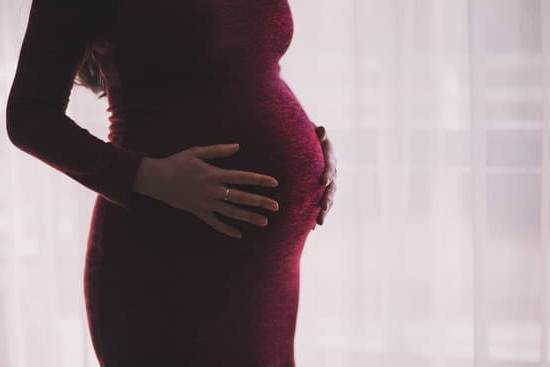Are you experiencing the excitement and wonder of pregnancy, eager to understand what to expect as your belly grows week by week? The journey of your pregnancy belly is a beautiful and incredible transformation, from the early stages of conception up until the birth of your baby.
Understanding the changes in your pregnancy belly can help you embrace this special time with confidence and positivity. Throughout this article, we will explore the different stages of pregnancy, from the first trimester all the way to the third trimester, providing insight into how your belly evolves week by week.
As you embark on this remarkable journey, it’s natural to have questions about the changes that will occur in your body as your pregnancy progresses. From the initial signs of a growing belly in the first trimester to the continued expansion in the third trimester, each stage brings about unique developments that are both physical and emotional.
By gaining an understanding of these changes, you can better prepare for what lies ahead and approach each new phase with greater ease.
Throughout this article, we’ll delve into common symptoms and concerns that may arise, offering tips for managing discomfort and itching that often accompany a growing belly. Additionally, we’ll explore ways to celebrate and embrace your changing body through self-care practices and body positivity.
If you’re interested in documenting this amazing transformation through meaningful photos, we’ll also provide creative ideas for capturing memories of your pregnancy belly as it grows week by week. Join us as we take a closer look at understanding and celebrating the journey of your pregnancy belly throughout each stage of this miraculous process.
First Trimester
During the first trimester of pregnancy, your belly may not show much physical change on the outside, but there are significant changes happening on the inside as your body prepares to nurture and grow a baby. Here’s how your pregnancy belly begins to change during weeks 1-12:
1. Hormonal Changes: As soon as you become pregnant, your body starts producing hormones like progesterone and hCG, which help to support the pregnancy and prepare for the growth of your baby. These hormonal changes can cause bloating and slight swelling in the abdomen, even before you start to show a visible baby bump.
2. Uterine Expansion: By around week 6 of pregnancy, your uterus has already doubled in size and is starting to push against other organs in your abdomen, which can contribute to feelings of fullness or mild discomfort. While this growth doesn’t usually result in a noticeable change in the appearance of your belly yet, it’s a significant part of the early stages of pregnancy.
3. Weight Gain: During the first trimester, most women will gain some weight due to increased blood volume and fluid retention. This can also impact the size and shape of your belly, even if it’s not specifically due to fetal development just yet.
As you navigate through these changes in your pregnancy belly week by week during the first trimester, be sure to focus on taking care of yourself both physically and emotionally as your body adjusts to these new demands. By embracing these early changes with self-care practices and patience, you can set a positive tone for the rest of your pregnancy journey.
Second Trimester
Feeling the Changes: Baby’s Growth and Your Expanding Belly
During the second trimester, which spans from weeks 13 to 27 of your pregnancy, you will likely start noticing significant changes in the size and shape of your belly. This is an exciting time as your baby grows rapidly, and your belly expands to accommodate that growth.
By week 20, your uterus may be at the level of your belly button or even slightly above, making it quite noticeable to others that you are pregnant. As you feel your baby’s movements becoming more prominent, you’ll also notice a difference in how your belly looks and feels.
Coping With New Discomforts: Managing Belly Itching and Discomfort
With the rapid expansion of your pregnancy belly during the second trimester, you may experience discomforts such as itchiness and stretching sensations in your skin. This is completely normal as your skin begins to stretch to accommodate your growing baby.
To manage these discomforts, consider using moisturizing creams or oils specifically designed for pregnant women to keep your skin hydrated and relieve itching. Wearing loose-fitting clothing made from breathable fabrics can also help reduce discomfort and irritation caused by the expanding belly.
Celebrating Your Changing Body: Embracing Self-Care and Body Positivity
As your pregnancy belly continues to grow week by week during the second trimester, it’s essential to practice self-care and embrace body positivity. Take some time for yourself each day – whether it’s through gentle exercise, mindfulness practices, or simply relaxing – to connect with both yourself and your growing baby. Surround yourself with supportive friends and family who celebrate this beautiful stage of motherhood with you.
Remember that every stretch mark and change in the shape of your pregnancy belly tells a story of love, growth, and nurturing life within you. Embrace these changes as a precious part of your journey towards motherhood.
Third Trimester
The third trimester of pregnancy is an exciting and challenging time as your baby continues to grow and your belly expands even more. By this point, you may be feeling a range of emotions, from excitement to anxiety, as you prepare for the arrival of your little one. Your pregnancy belly week by week will continue to change rapidly during this stage, and it’s important to understand what to expect in the coming weeks.
As you enter the third trimester, you will likely notice that your pregnancy belly has become significantly larger. This is due to the rapid growth of your baby, who is now gaining weight and developing at a faster rate. By week 28, your uterus has expanded to the size of a soccer ball, and as you progress through each week, you may feel increased pressure and discomfort in your abdomen as your baby continues to grow.
In addition to the physical changes in your pregnancy belly during the third trimester, you may also experience other symptoms such as Braxton Hicks contractions, back pain, and shortness of breath. It’s important to pay attention to these changes and communicate any concerns with your healthcare provider. They can provide guidance on managing these symptoms and help ensure that everything is progressing normally with both you and your baby.
As you approach the final weeks of pregnancy, it’s essential to practice self-care and prioritize rest. Embracing body positivity during this time can also help alleviate any anxieties or insecurities about how your pregnancy belly looks or feels. Many women find comfort in documenting their changing bodies through creative and meaningful photos. This can be a beautiful way to celebrate the journey of your pregnancy belly week by week and create lasting memories before welcoming your new arrival.
| Pregnancy Belly Week | Changes/Developments |
|---|---|
| Week 28 | Uterus has expanded to size of a soccer ball; increased pressure/discomfort |
| Week 32 | Baby gaining weight rapidly; potential for Braxton Hicks contractions |
| Week 36 | Increased back pain; shortness of breath; nearing end of pregnancy journey |
Common Symptoms and Concerns
As your pregnancy progresses week by week, you may experience various symptoms and concerns related to the changes in your belly. Understanding what is normal and when to seek help is crucial for ensuring a healthy and safe pregnancy journey.
Here are some common symptoms and concerns related to your pregnancy belly, and when it’s appropriate to seek medical assistance:
– Round Ligament Pain: This is a sharp or stabbing pain that may occur on one or both sides of your lower abdomen, usually during the second trimester. It’s caused by the stretching of the ligaments that support your growing uterus. While this type of pain is generally considered normal, if it becomes severe or persistent, it’s important to consult with your healthcare provider.
– Abdominal Itching: As your skin stretches to accommodate your growing belly, you may experience itching. This is often normal as the skin adjusts, but if the itching becomes intense or is accompanied by a rash, it could be a sign of a more serious condition such as cholestasis of pregnancy. Be sure to discuss any unusual itching with your healthcare provider.
– Decreased Fetal Movement: Feeling less movement from your baby can be concerning, especially in the third trimester. While babies have sleep cycles and may not be as active at certain times, significant decreases in movement should be reported to your doctor right away. Monitoring fetal movement is an important way to ensure the well-being of your baby.
Remember that every pregnancy is unique, so if you’re ever unsure about a symptom or concern regarding your pregnancy belly week by week, it’s best to reach out to your healthcare team for guidance and reassurance.
Tips for Managing Belly Discomfort and Itching
During pregnancy, many women experience discomfort and itching in their growing belly. As the skin stretches to accommodate the growing baby, it can become tight and itchy, leading to discomfort. It’s important to find ways to manage this discomfort and itching to help make the experience more bearable.
Keep Your Skin Moisturized
One of the best ways to manage belly discomfort and itching is to keep your skin well-moisturized. Using a gentle, hypoallergenic moisturizer on your belly can help alleviate dryness and itchiness. Look for products that are specifically formulated for pregnant women, as they tend to be free of harsh chemicals and fragrances that can irritate the skin.
Wear Loose, Comfortable Clothing
Tight clothing can exacerbate belly discomfort during pregnancy. Opt for loose-fitting, comfortable clothing made from breathable fabrics like cotton. Avoid synthetic materials that can trap heat and moisture against your skin, leading to increased itching and discomfort.
Try Cooling Treatments
If you’re struggling with persistent itching, consider applying cool compresses or taking lukewarm baths to soothe your skin. Some women find relief from using aloe vera gel or oatmeal-based lotions to calm irritation. Always consult with your healthcare provider before trying any new treatments or remedies during pregnancy.
By implementing these tips for managing belly discomfort and itching, you can help make your pregnancy experience more comfortable as your belly continues to grow week by week. Remember that experiencing some level of discomfort is normal during pregnancy, but if you have any concerns about unusual symptoms or persistent itching, don’t hesitate to reach out to your healthcare provider for guidance and support.
Embracing Your Changing Body
During pregnancy, your body undergoes significant changes, especially in the appearance of your belly. It is important to embrace these changes and practice self-care and body positivity as you journey through this transformative time. As your pregnancy progresses week by week, you may find yourself feeling a wide range of emotions about the changes in your body. From excitement and awe to insecurity and discomfort, it’s normal to have mixed feelings about the transformation of your pregnancy belly.
One way to embrace your changing body during pregnancy is through self-care practices. This can include gentle exercises such as prenatal yoga or walking, nourishing your body with healthy foods, getting plenty of rest, and seeking emotional support from loved ones. Taking time for yourself to relax and connect with your body can help you feel more grounded and at peace with the changes happening.
In addition to self-care, practicing body positivity can significantly impact how you perceive the changes in your pregnancy belly. Remind yourself that every stretch mark and inch gained is a beautiful testament to the life growing within you. Surround yourself with positive affirmations and avoid comparing yourself to others.
Embracing your changing body during pregnancy means honoring its strength and resilience as it nurtures new life. Remember that each week brings new growth and beauty to your pregnancy belly, so celebrate these changes as part of the incredible journey of motherhood.
Documenting Your Pregnancy Belly
Whether you are a first-time mom or have been through pregnancy before, documenting your pregnancy belly with creative and meaningful photos can be a special way to cherish the journey of your growing baby. Capturing the changes in your pregnancy belly week by week can create lasting memories that you can look back on with joy and nostalgia.
One idea for creative pregnancy belly photos is to take a series of silhouette images. Stand against a bright window or in front of a sunset, and have a friend or partner outline your growing belly with a soft light. This can create striking and artistic images that beautifully showcase the shape and size of your pregnancy belly as it evolves week by week.
Another fun photo idea is to involve other family members in the picture. If you have older children, consider including them in the photo to capture their excitement about the new addition to the family. You can also involve your partner in the photos to celebrate their support and involvement in this special time.
For those who are more adventurous, underwater maternity photography has become increasingly popular. These unique and ethereal images can beautifully capture the magic of pregnancy, showcasing the weightlessness and buoyancy of your pregnancy belly as you float gracefully underwater. It’s important to work with a professional photographer experienced in underwater photography to ensure safety and stunning results.
| Idea for Creative Photos | Description |
|---|---|
| Silhouette Images | Have someone outline your growing belly with soft light for striking images. |
| Include Family Members | Involve older children or partner in the photo to capture their excitement and support. |
| Underwater Maternity Photography | Capture the weightlessness and magic of pregnancy by floating gracefully underwater. |
Conclusion
As you reflect on the incredible journey of your pregnancy belly week by week, it’s important to celebrate the miraculous changes that your body has gone through. From the initial subtle growth in the first trimester to the rapid expansion in the third trimester, each phase represents a unique and special moment in this beautiful journey of motherhood. It’s a time for appreciation and self-reflection as you anticipate the arrival of your little one.
Throughout this process, it’s crucial to acknowledge and embrace the common symptoms and concerns that come with a growing pregnancy belly. Understanding what is normal and when to seek help can alleviate any unnecessary worry and ensure a smoother journey. Additionally, managing discomfort and itching is essential for your overall well-being, so do not hesitate to seek advice from healthcare professionals or implement self-care strategies.
Finally, as you approach the end of this remarkable experience, consider documenting your pregnancy belly with creative and meaningful photos. Whether it’s a professional maternity shoot or simple weekly snapshots, these images will serve as cherished memories of this transformative time. Embrace your changing body with positivity and tenderness, knowing that your pregnancy belly holds an extraordinary story of love, growth, and anticipation.

Welcome to my fertility blog. This is a space where I will be sharing my experiences as I navigate through the world of fertility treatments, as well as provide information and resources about fertility and pregnancy.





